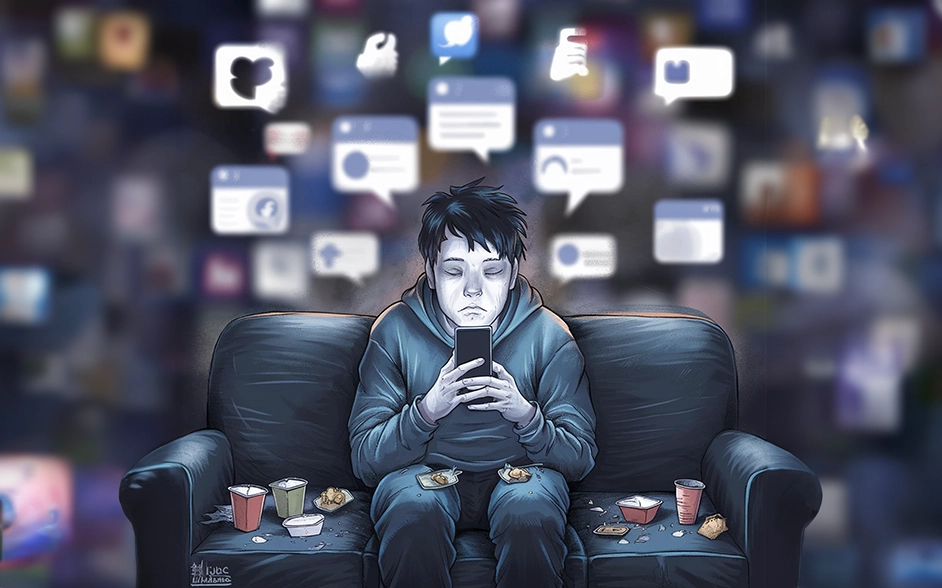- Mumbai, New Delhi, Bangalore
- (+91) 81518 30000
- WhatsApp Now
- contact@vedawellnessworld.com
Summary-In today’s digital age, social media platforms like Facebook, Instagram, and Twitter have become integral to our daily lives. While they offer platforms for connection and information, excessive use can lead to a behavioural addiction known as social media addiction. This condition is characterized by an overwhelming urge to engage with social media, often at the expense of personal well-being and responsibilities. Understanding this addiction, recognizing its signs, and implementing strategies to manage it are crucial steps toward fostering a healthier relationship with technology.
Social media addiction is a behavioural disorder where individuals feel compelled to use social media excessively, leading to negative impacts on their daily lives. This compulsive behaviour can result in neglecting personal and professional responsibilities, disrupted sleep patterns, and increased feelings of anxiety or depression. The constant need for validation through likes and comments can create a cycle of dependency, where one’s self-esteem becomes closely tied to online interactions and also leads to hyper activity and attention deficit.
If you find yourself spending more time on social media than intended, consider the following strategies to regain control:
While self-help strategies can be effective, there are instances where professional intervention may be necessary:
As social media becomes increasingly prevalent among younger populations, parents play a pivotal role in guiding their children’s digital consumption:
In India, the rapid proliferation of smartphones and affordable internet has led to a significant increase in social media usage among the youth. Studies have shown a correlation between excessive social media use and mental health issues such as anxiety and depression. The constant exposure to curated online personas can lead to unrealistic comparisons, affecting self-esteem and overall well-being.
While social media offers numerous benefits, it’s essential to maintain a balanced approach to its use. By implementing practical strategies, being vigilant about usage patterns, and seeking professional help, when necessary, individuals can enjoy the advantages of social media without falling into the trap of addiction. For parents, fostering an environment of open communication and setting clear boundaries can help children navigate the digital world safely and responsibly.
Social media addiction means feeling like you have to keep checking apps like Instagram, Facebook, or YouTube, even when it affects your daily life. If scrolling takes over your time, your sleep, and your peace of mind—you may be addicted.
If you’re spending hours every day online, checking your phone the moment you wake up, feeling anxious when you’re offline, or comparing yourself to others often, these may be signs of too much use. You might also notice less interest in hobbies or less time with friends and family.
Start small.
Even one small step can help reduce your need to constantly check your phone.
If social media is making you feel constantly sad, anxious, or if you’re unable to stop using it despite trying, it’s time to seek help. Mental health professionals can guide you with tools and support to feel better and more in control.
Talk to them regularly—not just about screen time, but about what they see online and how it makes them feel. Set healthy limits together, encourage offline fun, and most importantly, lead by example. If you’re always on your phone, they’ll think it’s okay to do the same.
